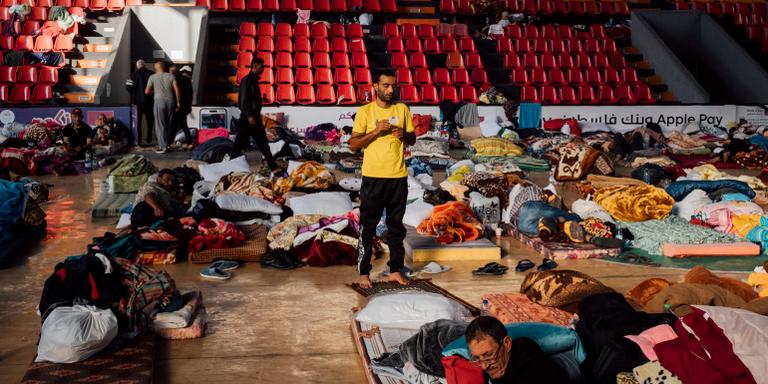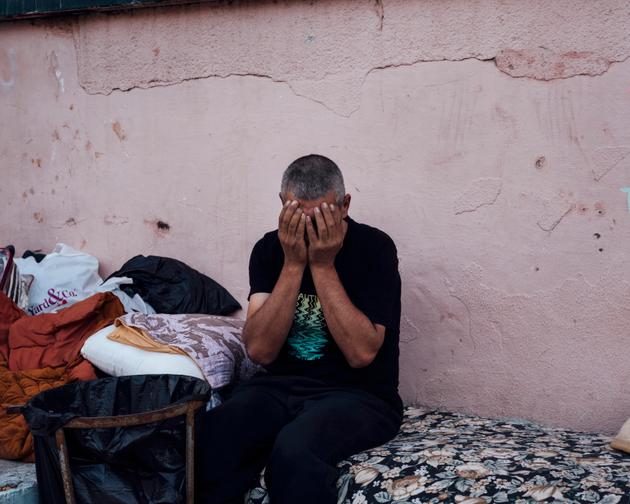


Israel-Hamas war: In the West Bank, the anguish of Gazan workers expelled from Israel
FeatureHundreds of Palestinians from Gaza have moved to shelters in the West Bank, following the cancellation of their work permits in the Jewish state.
"Do you have two jackets? We've come to check in." The three Palestinians stepped forward shyly, their features drawn and wearing flip-flops. They had just arrived, after a thousand detours, in Ramallah on Thursday, October 12. They were from Gaza, just like the rest of the mostly older men who wandered between the downtown sports center's gym and café, their eyes either staring into space or glued to their cell phones. Sometimes, one of them shouted and the other two held hands in a kind gesture.
"We go back and forth between laughter and tears, we go crazy," said Abu Ali – who preferred not to give his real name for fear that Israel would permanently revoke his permit to work in the Jewish state. The 48-year-old Gazan is one of the few thousand Palestinians from the enclave authorized to work on the other side of the fence that separates the Gaza Strip from Israel. After the deadly Hamas attack on October 7, in the villages near the border, these workers were either expelled to the West Bank by Israeli police or voluntarily sought refuge there for fear of reprisals.

Abu Ali arrived in the West Bank with three of his brothers, all silent. "We're scared. We're safe, but our people are under the bombs. I have enough to eat and drink here, but I can't swallow anything when I know that my children will soon be hungry." Since October 7 and the death of 1,200 Israelis, the Jewish state has been carrying out bombings of unprecedented intensity on the Gaza Strip. At least 1,500 Palestinians have been killed. No part of the enclave has been spared by Israeli bombs, which have hit residential areas densely populated with civilians. A single bombing on Thursday in the Jabalia refugee camp in the north of the enclave killed 45 people. "There are so many dead in Gaza that the mortuaries are full. Corpses are piling up in the streets," posted the Palestinian human rights NGO Al-Mezan on X (formerly Twitter) on Thursday. Israel has placed Gaza under a complete siege, and no humanitarian convoys can get through.
'She preferred to die at home'
"I spoke to my wife today at nine in the morning. I'm waiting for 10 pm this evening, so that she can charge her phone a little, to get some news," said Abu Ali, taking a deep drag on his cigarette. He tried to convince his loved ones to take refuge in a school, like several hundred thousand Gazans. "My wife told me that they weren't safe anywhere; she preferred to die at home," he reported, dejected. "It's a bloodbath. Even if I go back to Gaza, I won't recognize anything. Everything's gone." Next to him, a man interrupted the conversation and held up a photo on his phone, which showed a pile of rubble in front of gutted buildings: "This is what's left of my house."
You have 65.44% of this article left to read. The rest is for subscribers only.
